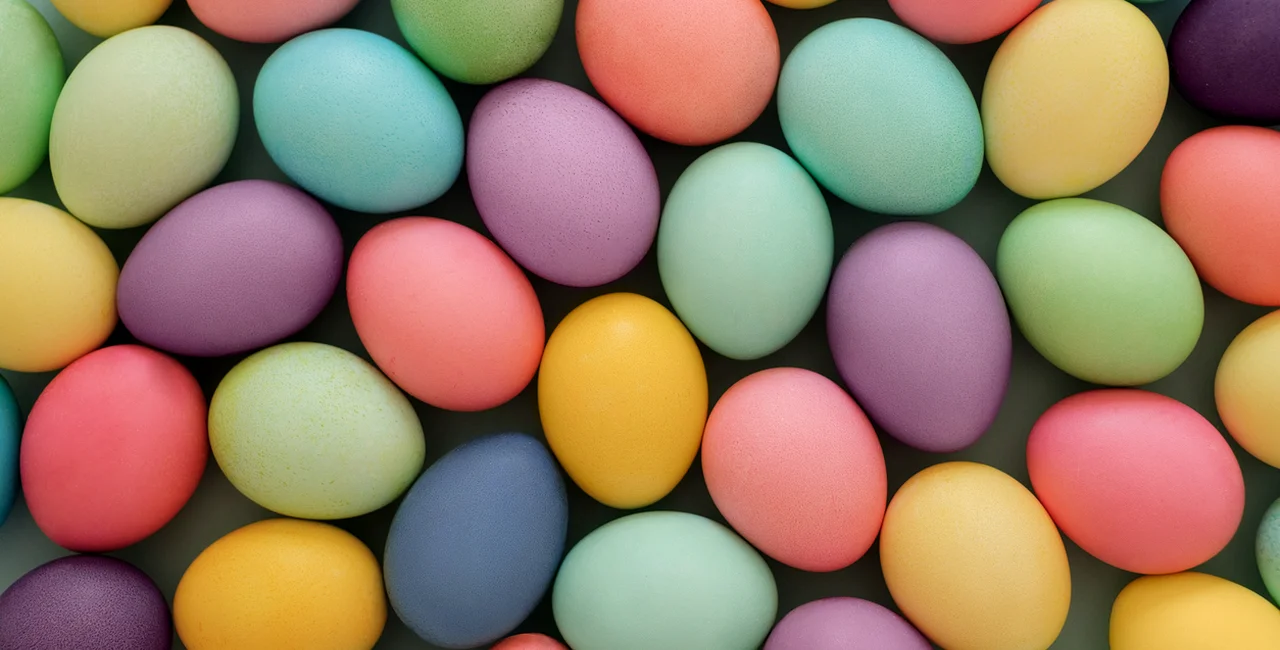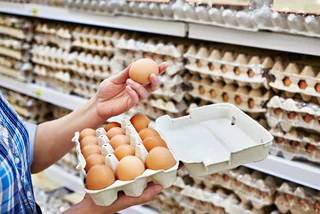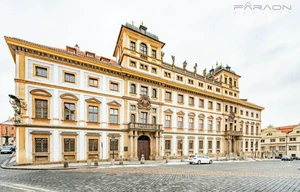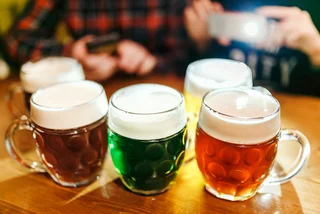No matter how you choose to celebrate, or which traditions you observe, Easter is an opportunity to greet spring and indulge in sweets.
But Easter baskets and festive tables may feel a little lighter this year (or perhaps your wallet will) given the recent price hike seen in the foods that go into preparing the customary Czech velikonoce celebration.
Heading out shopping for the long Easter weekend? Here's where you'll pay more.
Eggs going up
Most consumers will have noticed the skyrocketing price of eggs, a food item that has had the most pronounced increase in Czechia out of all EU countries. Year on year, eggs are now 95 percent more expensive – compared with the EU average rise of 31 percent. A mass culling of chickens following an outbreak of bird flu has only worsened the situation.
Staple ingredients all higher
Due to extant inflation, the prices of many ingredients for traditional Easter-related dishes have risen. The average cost of milk, for example, is almost double that of last year. Sugar is around 90 percent more expensive, and eggs are 95 percent pricier year on year.
Chief Economist of Trinity Bank, Lukáš Kovanda"Easter 2023 will be by far the most expensive in history…the price of the 'Easter shopping basket' has increased by more than 30 percent compared to last year"
Many consumers won't just hunt for Easter eggs, but also for discounts at supermarkets to lessen the effects of inflation. According to monitoring company Česká distribuční, the average discount offered for Easter meal ingredients is around 25 percent.
Green beer growing in price
Alcohol – which goes hand in hand with the Czech Easter Monday celebration – will also cost more. The average price of half a liter of beer (often served in a green color during Easter) grew from CZK 47 in 2021 to CZK 52 in 2022. Half a liter of the popular slivovice drink (plum brandy) often drunk at Easter will cost about CZK 500.
WHAT'LL COST YOU MORE: 2022 versus now
- Butter (250g) - CZK 36 in 2022 to CZK 43 now
- Semi-skimmed milk (1l) - CZK 11 to CZK 21.5
- Granulated sugar (1kg) - CZK 13.2 to CZK 24.9
- Butter (250g) - CZK 36 to CZK 43
- Semi-skimmed milk (1l) - CZK 11 to CZK 21.5
- Eggs (10 pcs) - CZK 35 to CZK 60
- Granulated sugar (1kg) - CZK 13 to CZK 25
- Plain flour (1kg) - CZK 17 to CZK 24
- Light beer (bottled; 0.5l) - CZK 12.9 to CZK 13.6
- Traditional Easter confectionery (1 pc) - CZK 25 to CZK 37
A report from last week also found the price of Czech Pilsner on tap has grown CZK 10 in the past two years – currently hovering around the CZK 58 region. Notably, the spring holiday is a period that sees the second-highest amount of alcohol consumption after Christmas.
Vegetables have also increased in price in the past few months due to supply issues. Green peppers, for example, have risen by about 40 percent year on year. Salad cucumbers now cost over CZK 50, from under CZK 45 last year. Half a kilogram of spinach remains affordable, though, at just over CZK 30.
Not everything has jumped in price, though. Unpeeled almonds are slightly cheaper than the year-earlier period, and vanilla sugar – used for baking Easter recipes – has remained the same.
A popular holiday for consumers and retailers
Easter presents a lucrative opportunity for retailers to make good sales; it is “the third-most profitable holiday of the year for traders,” says chief economist of Trinity Bank Lukáš Kovanda.
This year, people in Czechs will spend an estimated CZK 11 billion on Easter – about CZK 1,300 per adult resident. In 2021, people spent approximately CZK 900 each on the holiday.
Market research firm Rondo Data found that 71 percent of Czechs celebrate Easter. Six in 10 people say they will dye or paint eggs and almost half (45 percent) said they usually drink alcohol during the holiday.
The increases in the prices of products during Easter serve as a reminder of the economically difficult situation in the country – unsurprising, yet frustrating, for most.













 Reading time: 3 minutes
Reading time: 3 minutes 































